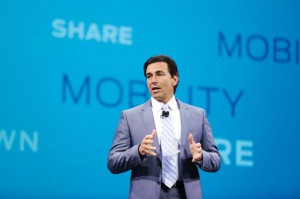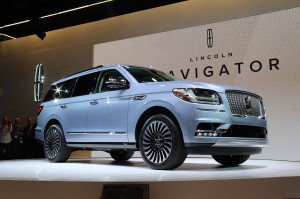Amidst signs of turmoil within the company, Ford’s top executives faced some sharp questions from shareholders during the first every “virtual annual” meeting.
“You both say that your main priority is to provide long-term shareholder value,” one shareholder asked. “Losing 40% of the value since Mark (Fields) took over as CEO doesn’t seem to be upholding that pledge.”
In response, William Clay Ford Jr., Ford’s executive chairman and the great grandson of the company’s founder, said that the company’s stock price matters both to the Ford family and Ford’s top management. However, he added, Wall Street has historically undervalued automakers, even when they are earning substantial profits.
“Look, we’re as frustrated as you are by the stock price. And a couple of people have said, ‘Well, does the Ford family care about the stock price?’ The short answer is yes, a lot. Much of our — most of our net worth is tied up in the company. And the stock price matters a lot to us,” Ford said.
Nonetheless, the weak Wall Street performance, along with weak first-quarter earnings and slipping sales at the showroom, has turned up the heat on Ford executives. Just ahead of the annual meeting, Ford revealed that a senior marketing manager, once identified as a “rising star,” was leaving the company. Chantel Lenard, executive director of U.S. marketing and a 25-year Ford veteran, is leaving June 1 to “pursue other interests,” according to a company spokesperson.
Lenard is being replaced by Andrew Frick, currently director of sales and service at Ford’s luxury line, the Lincoln Motor Company. The move was announced internally at Ford this week just as the board of directors was looking for more clarity about the company’s direction and strategy, several reports suggest.
A shake up in the company’s marketing effort is frequently the response by automakers facing declining sales and loss of market share.
Ford’s net earnings dropped by 35% for the first quarter, even as rivals such as General Motors, Fiat Chrysler Automobiles NV and Daimler AG were all posting big increases in profitability.
(Weak auto sales lead to new Ford layoffs. For the story, Click Here.)
The second-largest U.S. automaker’s stock price also has languished for more than two years now, falling by more than a third since reaching a post-recession peak of more than $17 per share at the end of 2014, and just a few months after Fields took over as CEO from Alan Mulally. Ford shares are now trading at around $11 even in the midst of a post-Election-Day rally that has lifted key market indexes so far this year.
The burden on the company’s share price was exacerbated by headlines indicating that Tesla was now worth more than Ford on a market capitalization basis.
The website Seeking Alpha noted that Ford’s problems could be temporary. But Ford’s shares seem to face some stiff headwinds. “The negativity around shares right now is extremely high, and it seems everybody and their mother is giving themselves an attaboy for seeing the price depreciation ahead of time,” the website noted this week.
So it comes as no big surprise with the first quarter results on the books, that Ford’s directors might decide to start asking for more clarity about Ford’s strategy at this point.
(Click Here for details about Ford’s weak Q1 finanicals.)
During the shareholders’ meeting, Bob Shanks, Ford’s chief financial officer, noted the automaker will have distributed $15.3 billion back to shareholders since it reinstated a dividend in 2012 if it follows through with plans to distribute $2.7 billion in dividends this year.
Fields, whose leadership is coming under serious scrutiny, did not have an easy act to follow, coming in after the highly regarded Mulally was able to steer the automaker through the Great Recession without seeking the government bailouts needed to rescue rivals General Motors and Chrysler Corp. from bankruptcy.
Since assuming his post, CEO Fields has tried to reposition Ford as a “mobility company,” rather than just an automaker – an approach echoed by several rivals, including Germany’s Volkswagen AG. That has meant hefty investments in technologies such as autonomous driving and connected cars.
But critics have faulted some of the moves made under Fields, such as waiting to re-enter the midsize pickup segment that has shown new vitality as other manufacturers have rushed in with new products.
(Ford strategy under scrutiny. Click Here for more.)
After a long delay, Ford now plans to sell a U.S. version of the midsize Ranger pickup it introduced overseas several years ago. Ford will use the same platform for a revival of the old Bronco SUV. Both models, meanwhile, will be assembled at the maker’s assembly plant in Wayne, Michigan, the suburban Detroit factory that had been producing slow-selling passenger car models such as the Focus sedan.
During the annual meeting, Fields repeated the company’s commitment to electrification. Ford will spend $4.5 billion on 13 new electrified vehicles over the next five years. That includes a battery-electric vehicle that will have a range of more than 300 miles on a single charge to compete against products such as the Chevrolet Bolt EV and the upcoming Tesla Model 3.
The future EV from Ford will be a small SUV, Ford said. However, critics have noted that Ford is trailing rivals in developing EVs, which are expected to play a larger role in industry sales over the next decade – even though electrified products, in general, barely account for 3% of the current U.S. market.
(Paul A. Eisenstein contributed to this report.)



